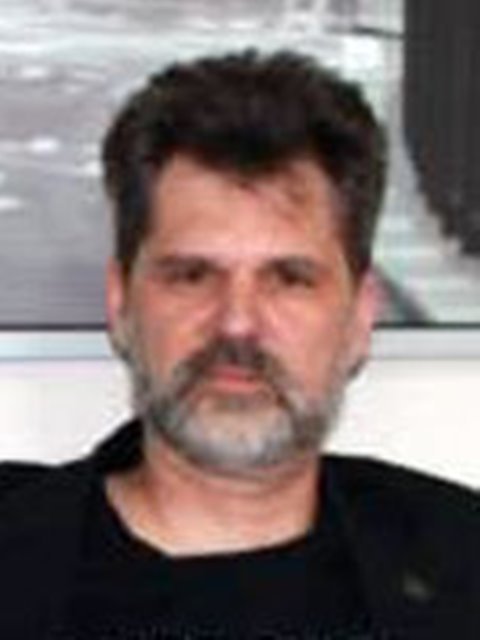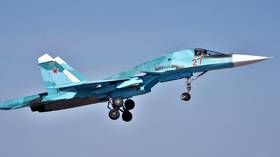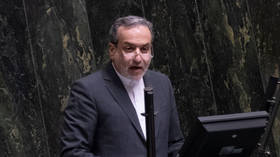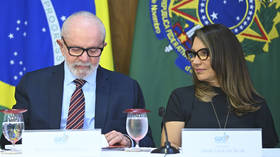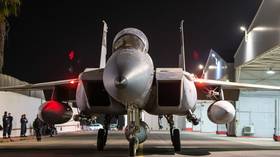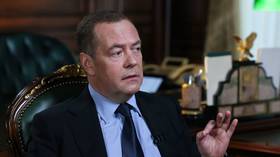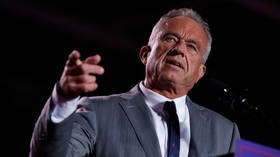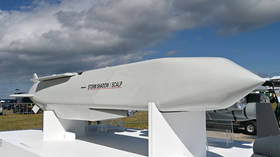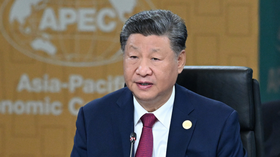As time goes by: Turkey’s role in Syria’s unfolding crisis
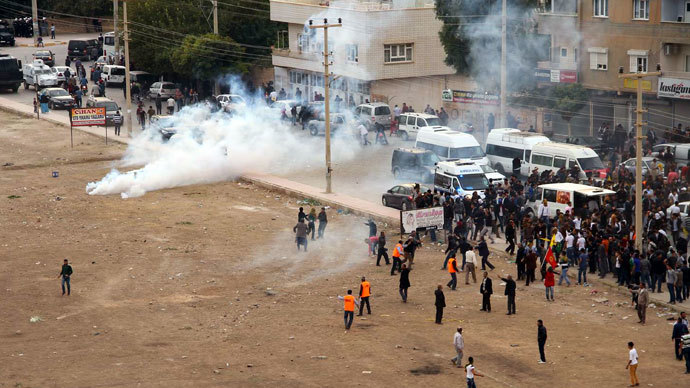
Under Erdogan Turkey became directly involved in the Syrian crisis as his support for the Muslim Brotherhood brought an ideological context to Turkey’s hostile stance against Assad’s government.
At the beginning of 2011, continuing protests against Assad finally led to the end of the 48-year state of emergency in Syria and an amnesty for political prisoners, not without US and EU pressure. But several months later a well-known US whistleblower Sibel Edmondsclaimed that the US and Turkey have been giving logistic aid and military training to the Syrian armed opposition since “April-May 2011”. Edmonds even declared that the US Air Force base in İncirlik (Turkey) was used as a training facility for the so-called Free Syrian Army and other opponents of the Damascus regime – in her own words, “the dissident base in Syria.”
In March 2011 protesters in Damascus and the southern city of Deraa demanded the release of political prisoners, detained under the strict emergency rule in force since 1963. In response, the Assad regime started a campaign of mass arrests, imprisoning a wide cross section of society, including community leaders, imams and students.
Still, Assad appeared willing to be conciliatory and released dozens of political prisoners and even dismissed his own government. In April 2011 he lifted the state of emergency that had lasted for almost half a century. Nevertheless, about a month later, army tanks entered the towns of Deraa, Banyas, Homs and the suburbs of Damascus in an effort to violently suppress any anti-regime protests.
After the crackdown on protesters, in May 2011 the US administration and the European Union tightened their sanctions against Assad. In turn, he announced the amnesty for political prisoners.
In June 2011, the Assad government declared that 120 members of its security forces were killed by “armed gangs” in the northwestern town of Jisr al-Shughour, located about 16 kilometers from Turkey’s Hatay region. Assad’s troops laid siege to the town and more than 10,000 people subsequently fled to Turkey.
Since then reports have surfaced that Libyan fighters from Misrata went to Syria in an effort to support attempts to overthrow Assad. In addition, rumors equally abounded about Saudi Arabia and Qatar’s mobilization of jihadist fighters to undermine the Baath regime in Syria. Turkey’s Prime Minister Recep Tayyip Erdoğan has been vocal in his condemnation of Bashar al-Assad, ever since the outbreak of hostilities in Syria.
In spite of the Turkish government’s current belligerent stance on the Damascus regime – be it in the form of a “covert” war or as providing mere “logistic aid and military training” – in the early years of its AKP government, “Turkey proved instrumental in breaking Syria’s international isolation, which paved the way for Assad’s visit to France in 2005. In 2007, a free trade agreement between Turkey and Syria boosted the bilateral trade volume from $796 million in 2006 to $2.5 billion in 2010. In 2008, Turkey even brokered peace talks between Syria and Israel. While the following year, Ankara and Damascus abolished the visa regime, thus far hampering the free movement of people and products between both countries.”
As a result, one can but wonder about the reasons behind Erdoğan’s sudden change of heart. These political interactions took place against the backdrop of Turkey’s growing economic clout. Turkey was quite successful on the international front, promulgating Foreign Minister Davutoğlu’s principle of "strategic depth" and his much-vaunted “zero problems policy”. In 2010, I described this pragmatic policy of Turkey as “pseudo-Ottoman”, as a political means of maximizing its economic clout in the region and beyond. In this context of Turkey’s increased economic stature, Turkey’s forays into Pipelineistan, by means of the projected Nabucco Pipeline, appeared under threat from a venture by Iran, Iraq and significantly Syria. Syria’s civil war then seemed like a fortunate obstruction, ensuring the success of Turkey’s designs to thwart Russia’s energy hold on the EU. Since then, however, the Nabucco project has been sidestepped by the operators of the Shah Deniz gas field in the Caspian Sea (BP, Total, Statoil and SOCAR). This economic plot might provide a practical reason for the Turkish Prime Minister’s sudden change of heart.

Beyond such purely pragmatic grounds, Syria’s beleaguered president has suggested a distinctly ideological motive for Tayyip Erdoğan’s unexpected enmity. In an interview given by Bashar al-Assad last October, conducted by the Turkish journalist, Ece Zereycan, and broadcast on the Turkish television channel, Halk TV, he described his earlier cordial relations with the Turkish prime minister, concluding that the latter’s support for the Muslim Brotherhood caused the Turkish state to become an enemy of Syria, while maintaining that the Syrian people are still very fond of Turkey and its people. Bashar al-Assad believes that the Turkish PM, as a Sunni Muslim, who is arguably pursuing a policy of sunnification domestically, has become allied with his Sunni opponents.
Assad, as a member of the Allawite branch of the Twelver school of Shia Islam (a group representing about 12 percent of Syria’s overall population), opposes the Muslim Brotherhood. They, in turn, harbor a special hostility towards Syria’s president, as his father Hafez al-Assad had at least 10,000 people massacred in response to their calls for mass uprisings against the Damascus government in 1982.
The French intellectual, Thierry Meyssan, for his part, is even more outspoken on this topic. Meyssan calls the “Muslim Brotherhood, a secret organization that Erdogan and his team have always been affiliated to, despite their denials”. And in effect, as a pious believer and self-proclaimed Muslim Democrat, Tayyip Erdoğan has been more than outspoken in his support for the Brotherhood, particularly praising the fifth president of Egypt, Mohamed Morsi, and strongly condemning his removal from office on 3 July 2013 by the “coup that is not a coup” led by General Abdul Fattah al-Sisi.
Edmonds’ [US whistleblower] claims that Turkey under Erdoğan is directly involved in the Syria crisis were apparently confirmed in 2012 when Eric Schmitt published his scoop in the New York Times. In his piece, Schmitt wrote that a “small number of CIA officers are operating secretly in southern Turkey, helping allies decide which Syrian opposition fighters across the border will receive arms to fight the Syrian government”. Elaborating on his claim, Schmitt added that these “weapons, including automatic rifles, rocket-propelled grenades, ammunition and some antitank weapons, are being funneled mostly across the Turkish border by way of a shadowy network of intermediaries including Syria’s Muslim Brotherhood and paid for by Turkey, Saudi Arabia and Qatar,” [unnamed American] officials said. In addition to the counties listed, Germany’s involvement was also made public last year. According to the German tabloid newspaper, Bild am Sonntag, (and confirmed by the reputable der Spiegel), Angela Merkel’s government dispatched the 84-metre long naval service ship, Oker, to Syria’s coast. The Oker, which usually patrols the eastern Mediterranean for NATO, has the capacity to collect information from locations as deep as 600 kilometers inland: arguably intelligence about Syrian troop movements, in this case information it can then forward to Syrian opposition fighters. At the time, US and British spy agencies also seem to have provided vital information for anti-Assad forces to be forwarded by the German navy ship.

In fact, Turkey’s greater direct involvement in Syria was then also confirmed by the news agency, Reuters. From Dubai, Reuters’ Regan Doherty and Amena Bakrreported that “Turkey has set up a secret base with allies Saudi Arabia and Qatar to direct vital military and communications aid to Syria’s rebels from a city near the border,” citing some Gulf sources. News of the clandestine Middle East-run ‘nerve center’ working to topple Syrian President Bashar al-Assad underlines the extent to which Western powers – who played a key role in unseating Muammar Gaddafi in Libya – have avoided military involvement so far in Syria. In this instance, it seems that Reuters apparently forgot that Turkey is part and parcel of the Western alliance as a NATO member and close friend of the US. Or is it that only Israel, as an imported nation state in the Middle East, can be publicly termed a member of the Western powers? Nevertheless, Doherty and Bakr’s story clearly shows that Turkey was stepping out of the shadows and publicly assumed a leading role in the mission to topple the Syrian Baath regime.
On the verge of military invasion
Turkey has been close to intervening militarily on a number of occasions, in response to provocations that could arguably be described as false-flag operations.
In late 2012, a civilian home in the Turkish border town of Akçakale was apparently attacked by the Syrian army. And rumors of Turkish troops entering the fray immediately started flying about, but in the end, Turkey settled for firing a number of mortar rounds into Syrian territory. After it transpired that the attack did not constitute a sufficient casus belli [grounds for war] for Turkey, the German media station ZDF (Heute in Europa or ‘Today in Europe’) even reported that Syrian “rebels” attacked a Turkish border town. The Turkish government took revenge for the attack and simply shot back, a retaliation which, according to the Syrian Observatory for Human Rights, resulted in the death of three Syrian soldiers.
Earlier this year, another provocation occurred in the small border town of Reyhanlı, also known as “little Syria” locally. Two deadly bomb blasts rocked the town, killing at least 51 people and injuring 140. The Turkish Prime Minister Tayyip Erdoğan immediately seized the opportunity to issue war-like threats and conjure up an atmosphere of imminent hostilities, similar to the situation in 1999 when Turkey had also threatened Syria with war on account of Damascus harboring the PKK’s leader, Abdullah Öçalan. In response to the Reyhanlı attack, Deputy Prime Minister Bülent Arınç even stated that Syria’s “Mukhabarat[intelligence agency] and armed organizations are the usual suspects in planning and carrying out such devilish plans”, clearly laying the blame at Assad’s doorstep.
Still, it seems puzzling why the Syrian regime would perpetrate such a heinous act. And then, Turkey’s Interior Minister Muammer Güler held a press conference, declaring that “For the time being there is no evidence suggesting that Al-Qaida was involved.” Still, Erdoğan held firm: “These attacks betray the intention of a country on fire which is trying to drag Turkey into the same fire. These attacks, to put it bluntly, are the bloody Baath regime’s attempt to provide an opportunity to its collaborators... These attacks aim to provoke those who live together in peace, in serenity, in fraternity, particularly inHatay. Most importantly, these attacks target Turkey which has resolved its terror issue, reinforced fraternity, put an end to mothers’ tears,” adding that “This incident is definitely connected to the [Syrian] regime. The [Syrian] regime is behind this incident. That is evident.”
At the time Turkey was prepared to go to war, but first, Tayyip Erdoğan met with US President Barrack Obama, and, as I then wrote “prior to boarding his States-bound flight he announced to the nation that, upon his return, things would be very different”. Erdoğan seemed particularly keen to impose a “no-fly-zone”, similar to that in Libya, as he reiterated during his NBC interview with Ann Curry. During the PM’s talk with the US president, “Obama emphasized that the US ‘reserves the right’ to attack Syria militarily, in spite of a deal previously agreed upon with Russia to pursue a negotiated settlement at a peace conference in Geneva to be held [in June, and now in January 2014]. Still, Obama insisted that the US would not attack Syria unilaterally, arguably willing to relegate the main responsibility to an actor like Turkey as part of a ‘broader alliance’. Being the consummate statesman that he is, President Obama said that the US has ‘no magic formula for dealing with an extraordinary violent and difficult situation like Syria’s’.” And so, war was once more averted and Turkey did not send its troops into Syria.

Turkey has nevertheless been active in the pursuit of its Syria policy, apparently spending more than TL694 million ($386 million) from the Prime Ministry’s discretionary funds to this end in 2012. These discretionary funds can be used by the Prime Minister to finance ‘secret intelligence gathering’ and ‘covert operations’ in the pursuit of ‘national security’ and other ‘high benefits’ of the state, as worded by Article 24 of the Law regarding Management and Control of Public Finances. The quoted figure was published by the Turkish daily Vatan, indicating that over the past ten years the fund has paid out TL2.866 billion. The fact that last year’s discretionary spending was nearly double the amount of 2011 (TL 391 million) has led some to argue that these funds must have been used in furthering Turkey’s goals in Syria. According to Cem Ertür, affiliated with the independent research and media organization Centre for Research on Globalization (CRG) based in Montreal, “This fund is financing Turkey’s covert war on Syria.”
Turkey’s unsuccessful attempts to initiate direct foreign intervention in Syria have since been made irrelevant by the use of “chemical weapons” in Syria. The world remembered President Obama’s reference to a “red line” first uttered at a press conference in the White House on 20 August 2012. The fact that the Assad regime possessed stockpiles of these agents became a convenient ploy, particularly following the Ghouta chemical attack on 21 August 2013. Even though US Secretary of State John Kerry was immediately convinced of Assad’s guilt, others have convincingly suggested that the “rebels” backed by Saudi Arabia’s Director of National Intelligence, Bandar bin Sultan, bore responsibility for the attack. The ensuing course of international reaction to the events appears like a movie script, with CBS correspondent Margaret Brennan and John Kerry saying that “[Assad] could turn over every single bit of his chemical weapons to the international community in the next week” – a phrase which led to the formulation of a cunning plan by the Russian foreign minister, Sergey V. Lavrov. Now Assad’s chemical weapons are in the process of being destroyed and a Geneva-2 peace conference is scheduled for 22 January 2014.
Turkey’s thwarted attempts to play a major role in Syria appear to have led to its current demotion on the world stage. In another context, the Turkologist, Andranik Ispiryan, even broadly spoke of the failure of what I have termed Turkey’s pseudo-Ottoman ambitions, paraphrasing Davutoğlu’s well-known dictum as “zero neighbors, multiple problems”. Syrian refugees fleeing the civil war at home constitute one of these problems. According to data provided by the UN, Turkey now hosts more than 600,000 Syrians (from the humble 10,000 two years ago), compared to approximately 50,000 Syrian asylum applicants for the whole of the EU. The Turkish government takes its responsibility towards these refugees very seriously. In a joint effort by the Turkish Pharmacists’ Association (Türk Eczacıları Birliği) and the Disaster & Emergency Management Presidency (Afet ve Acil Durum Yönetimi Başkanlığı or AFAD), the Syrian refugees have been incorporated into Turkey’s centralized healthcare system, enabling them to obtain free medication from any pharmacy in the country. Turkey’s Ministry of Health (Sağlık Bakanlığı), led by Mehmet Müezzinoğlu, has also applied a unified system for treating Syrian refugees residing in Turkey’s bigger provinces: in the first instance, these refugees will be able to receive free treatment at family health centers. Turkey’s Finance Minister Mehmet Şimşek declared that TL400 million has been allocated to the care of Syrian refugees currently residing in Turkey. The government’s care for the Syrian refugees in the country has led to many concerned voices in Turkey speaking out – particularly, those opposed to the AKP government and individuals critical of Prime Minister Recep Tayyip Erdoğan. As such, a conspiracy theory even surfaced, claiming that these refugees were to be given the right to vote in Turkey’s elections, which would arguably constitute another boost for Erdoğan and his party. But the Minister of the Interior Muammer Güler issued a statement in response, indicating that no such plans were afoot and that, according to the Turkish Citizenship Law, such rapid transfer of citizenship, which would offer the right to vote, was not possible.
In the end, one cannot but state that Turkey’s Syria policy has not led to any happy conclusions and that, in contrast, Turkey’s standing at home as well as abroad has suffered tremendously. In view of next year’s scheduled elections, one cannot but wonder whether the opposition will be able to oust the AKP from its lofty position, or if the grassroots support enjoyed by Erdoğan and his cohorts will be sufficient to continue the status quo and even turn Turkey’s Prime Minister into the country’s President. Only time will tell.
The statements, views and opinions expressed in this column are solely those of the author and do not necessarily represent those of RT.
The statements, views and opinions expressed in this column are solely those of the author and do not necessarily represent those of RT.
